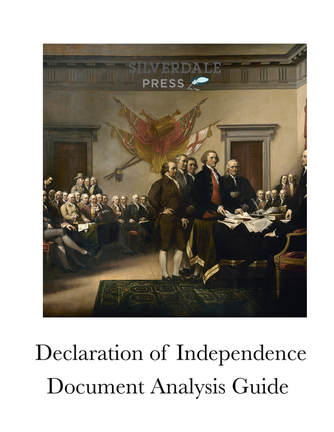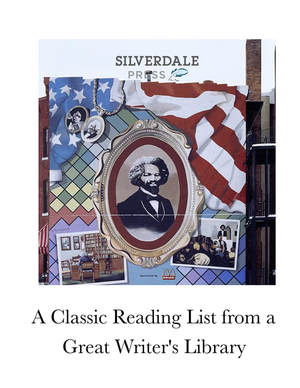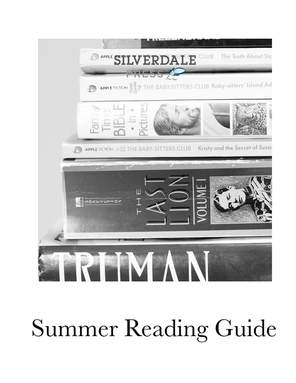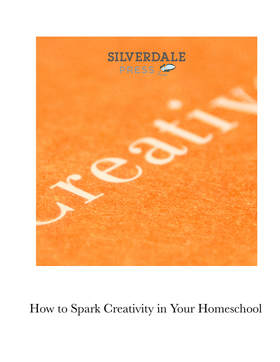 Want your Independence Day to have special meaning for your kids? Sure fireworks and parades are great, but don't you want it to be educational as well? Homeschool families are great at grasping every occasion, even holidays, as learning opportunities. To get to the heart of the holiday, do not neglect the Declaration of Independence. Did you know that there was no formal signing ceremony on July 4, 1776? According to historian David McCullough, "The signing began on August 2, and continued through the year as absent delegates returned to Philadelphia. No formal signing ceremony ever took place. The scene comes closer to portraying June 28, when Thomas Jefferson submitted his first draft of the Declaration. But then, too, there was no such dramatic gathering." Nevertheless, Philadelphia in the year 1776 was was a time of high drama and higher ideals. Those drama and ideals were captured in the Declaration of Independence. That’s why the Fourth of July is the holiday we celebrate, “When in the Course of human events…” The Declaration of Independence has been revered as the nation’s birth certificate. But do your students really know it? Many people think they know it but have never taken the time to study it, to absorb it, to ponder it. And most people are probably only familiar with the preamble. The Declaration actually has five sections: introduction, preamble, grievances, denunciation, and conclusion. Written by a committee of five men--Thomas Jefferson, John Adams, Robert Livingston, Benjamin Franklin, and Roger Sherman—the Declaration is a preeminent American political document. To help your family mark the holiday, we at Silverdale Press have created a primary source document analysis guide for the Declaration of Independence. Our newsletter subscribers received this as a free download. It is so important for our kids to learn history from primary sources. Our kids should not be taught to rely on someone else's interpretation of history, especially when they can examine documents and draw conclusions for themselves. Our White House Holidays series of unit studies relies extensively on primary sources. As you plan your next homeschool year, check out our Labor Day, Veterans Day, Thanksgiving, Christmas, Martin Luther King, and Valentine’s Day unit studies. These unit studies are self-contained. Parents do not need any resources other than what is included. Our unit studies are engaging and rigorous, as well as easy for parents. Plus, they train your kids to use primary sources! Find the Declaration of Independence here. I. Introduction
II. Preamble
III. Grievances
IV. Denunciation
V. Conclusion
0 Comments
 "What should I read? What should my kids read?" These two questions occupy the homeschool mom during the carefree summer months, as well as during the school year. One way to be sure your children are reading the best books is to dig into the reading lists of the great men and women of history. Great men and women often read voraciously. Their books were high quality in both thought and prose. What flowed out of their pens, words, and actions was a reflection of what they “fed” themselves through books. For great writer and influential abolitionist Frederick Douglass, learning to read did not come easily. Douglass was born into slavery. When he was a slave boy, his mistress taught him “the A, B, C,” he recalled in his autobiography. Under the threat of her husband, who did not want young Frederick to read, his mistress stopped her literary training. But this only increased Frederick's determination. “Though conscious of the difficulty of learning without a teacher, I set out with high hope, and a fixed purpose, at whatever cost of trouble, to learn to read.” And young Frederick did teach himself. He tricked neighborhood boys into teaching him. He practiced reading newspapers when nobody was watching. And he learned how to write by secretly tracing the copywork of his master’s young son. “When left thus, I used to spend the time in writing in the spaces left in Master Thomas’s copy-book, copying what he had written…Thus, after a long, tedious effort for years, I finally succeeded in learning how to write.” Frederick diligently sought literary self-training because he knew that it was the key to his freedom. And it was. Indeed, there is wisdom and freedom in the old methods of learning! We all want our kids to be great writers, thinkers, leaders, and citizens. And imitating the reading habits of the great men and women of history will help us go far in achieving this goal. So, what did Frederick Douglass read? Fortunately, the National Park Service has a list of the books he had in his personal library. We’ve gone through them and selected a list of books that would be perfect for homeschool families, for the summer and beyond. The works in Douglass’s library are fascinating and important, having shaped the course of Western civilization. (And the good news is that many of them are out of copyright and are available for free online!) The Cricket on the Hearth by Charles Dickens Bleak House by Charles Dickens The Count of Monte Cristo by Alexandre Dumas The Three Musketeers by Alexandre Dumas History of the Decline and Fall of the Roman Empire by Edward Gibbon Northwood; Or Life North and South by Sarah J. Hale The House of Seven Gables by Nathaniel Hawthorne The Odyssey by Homer The Illiad by Homer Missionary Travels and Researches in South Africa by David Livingstone The American Conflict by Horace Greeley The Autocrat of the Breakfast Table by Oliver Wendell Holmes The Life and Voyages of Columbus by Washington Irving Twelve Years a Slave by Solomon Northup A Journey through Texas by Frederick Law Olmsted Mary Stuart: A Tragedy by Friedrich Schiller Notes from the Plymouth Pulpit by Henry Ward Beecher The Fair Maid of Perth by Sir Walter Scott The Farm and the Fireside by John Blake Works of Harriet Beecher Stowe by Harriet Beecher Stowe The Complete Works of Shakespeare by William Shakespeare Selected Poems by William Wordsworth The Life of William Wilberforce by Robert Isaac Wilberforce Heartsease by Charlotte M. Yonge Practicing the habits of great leaders, writers, thinkers, and citizens is at the heart of our mission at Silverdale Press. That mission is reflected in our new 36-week language arts curriculum, Persuasive Writing and Classical Rhetoric: Practicing the Habits of Great Writers. Parents need not worry about doing writing instruction. We, along with the world’s greatest writers, do all the work for you. In each lesson, we profile a great writer, telling you all about his or her reading habits.  Summer is a great time for your kids to read freely. But what should they read? While it is tempting to allow kids to read whatever they want, British home education advocate Charlotte Mason advised that children should avoid “twaddle." “They must grow up on the best. There must never be a period in their lives when they are allowed to read or listen to twaddle or reading-made-easy. There is never a time when they are unequal to worthy thoughts, well put; inspiring tales, well told.” -Charlotte Mason Here are a few tips to for putting together a summer reading list that’s not filled with twaddle and that your kids will enjoy:
First, great leaders, writers, thinkers, and citizens have also been great readers. In putting together a reading list, it’s a good idea to imitate what the greats have read (more on this below). Second, children should also be allowed to read non-twaddle that interests them. So, let them have some input within certain parameters. Third, a variety of genres will broaden students’ minds. Include non-fiction in particular, as this genre is less likely to be filled with twaddle. There’s always something to be gleaned from reading about real people and events. In Jacqueline Kennedy’s oral history, she talked about her husband’s reading habits—from his boyhood to his manhood. Before he was president, he was a great reader. We’ve devised a reading list template based on John F. Kennedy’s reading habits. JFK also won the Pulitzer Prize for his book, Profiles in Courage. “But he was just always reading, practically while driving a car…I think he was always looking for something in books—he was looking for something about history, or something for a quote, or what…” -Jacqueline Kennedy The following reading guide is based on JFK’s reading habits. We provide the guidelines; you and your children get to pick the books.
In our new homeschool writing curriculum, Persuasive Writing and Classical Rhetoric: Practicing the Habits of Great Writers, we have students make a reading list (just like the one above) to use as free reading throughout the year. Plus, in our “Profiles in Rhetoric” section of each lesson, students will learn more about the reading and writing habits of the greats: Dorothy Sayers, Patrick Henry, Winston Churchill, and more! Keep doing the great work of filling your child’s mind with good words!  Are you raising up a young novelist, poet, biographer, painter, dancer, actor, musician, thinker, programmer, scientist or tinkerer? All of our children have creative capacity, and all fields of knowledge require creativity. But are we helping our children’s creativity to flourish in our homes and in our homeschools? Certainly, this should be a goal. Here are some great tips to help spark creativity in your child. Allow for Boredom “Mom, I’m bored!” How often do parents hear this? The good news is that you don’t have to fight boredom. Boredom promotes creativity. The typical child being raised in America today has a schedule packed with school, activities, sports, and lessons. There’s hardly a minute in the day for dreaming and thinking. If there is no down time, the mind cannot wander. The mind cannot wonder. If every minute is filled, there is no margin for creative sparks to ignite. Boredom forces kids to get creative. Boredom is fertile ground. Carefully Select "Screen Time” Activities How many big ideas were hatched when mindlessly scrolling through social media? Or playing a video game? Or watching Netflix? Maybe some, but probably not many. Screen time may be a salve for the boredom problem. But, much of the time, it does not promote creativity. This is not to say that all forms of technology are bad for creativity. Your young child may want to write a play, and he may feel this play is more real if it is typed on a Chromebook. If so, that’s great. The point is that parents should carefully discern which screen-related activities will engage children in creative thinking and creative expression. Encourage the activities that do, minimize those that do not. Listen to Music Did you know that Walt Whitman wrote “Leaves of Grass” while he listened to opera? Music can open children’s minds to creative thinking. Many studies have linked music to academic success. And many high achievers and creatives have testified that music, especially musical training, can also help with collaboration, listening skills, problem solving, and connecting ideas. Schedule It There’s a saying that inspiration is for amateurs. Creatives show up and get to work. The point here is that lightening won’t just strike your kids with creative inspiration. Children have to be creative on purpose. To be creative on purpose, you have to schedule time for it. You have to set goals. Set a number of words to write every day. Schedule an hour where you’ll draw or sketch or tinker or work on handicrafts. Creativity happens when you are dedicated to it and make time for it. Say Yes Keep your eyes and ears open for your children’s passions. When they ask you to help make creative expression possible, say yes. (So long as it’s within reason). If your daughter wants to decorate cupcakes or experiment with baking recipes, say yes. If your son wants you to take him on a photography expedition, say yes. If your child needs help printing and binding a piece they’ve written, say yes. Also, make sure that you are helping them to follow their own passions. If you want your kids to be original, let them pursue their own creative outlets. Need some help in the creativity department? Our new writing curriculum, Persuasive Writing and Classical Rhetoric: Practicing the Habits of Great Writers, helps you cultivate the habits of some of the world's most creative leaders, writers, thinkers, and citizens. |
Silverdale PressCheck out our About Page to learn more about us! Categories |

 RSS Feed
RSS Feed